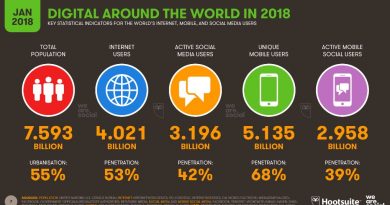naamsa Releases December 2023 New Vehicle Statistics
naamsa is pleased to release the challenging December 2023 new vehicle statistics. Overall, the period under review has been challenging since it is our fifth consecutive month of year-on-year decline. “We have not been able to out-perform the 2019 pre-pandemic levels yet but we remain hopeful that 2024 will deliver a different outcome for new vehicle sales in South Africa”, says Mikel Mabasa, naamsa CEO.
1. BRIEF COMMENT ON DECEMBER 2023 SALES
The new vehicle market registered its fifth consecutive month of year-on-year decline during December 2023, with aggregate industry new vehicle sales at 40,329 units recording a decline of 1,392 vehicles or a loss of 3,3% compared to the total new vehicle sales of 41,721 units during the corresponding month of December 2022. The December 2023 new passenger car market and light commercial vehicle market reflected a weak performance with a year-on-year volume decline of 3,9% in the case of new passenger cars and a loss of 2,9% in the case of light commercial vehicles. Sales of medium commercial vehicles declined year-on-year by 24,2% while heavy commercial vehicles and buses increased by 13,9%.
Export sales in December 2023 ended the year on a positive note and at 26,612 units reflected a gain of 317 vehicles or an increase of 1,2% compared to the 26,295 vehicles exported during December 2022 to end the year at a record-high of 396 290 units.
Overall, out of the total reported industry sales of 40,329 vehicles, an estimated 35,483 units or 88,0% represented dealer sales, an estimated 8,7% represented sales to the vehicle rental industry, 2,2% to government, and 1,1% to industry corporate fleets.
2. COMMENT ON 2023 NEW VEHICLE SALES AND VEHICLE EXPORTS: A DISAPPOINTNG YEAR AS THE DOMESTIC MARKET’S PROLONGED RECOVERY TO PRE-PANDEMIC LEVELS WILL CONTINUE INTO A FOURTH YEAR BUT RECORD VEHICLE EXPORTS.
The new vehicle market’s prolonged recovery from the COVID-19 pandemic stuttered towards the second half of 2023, following two previous years of sound rebound. The market was still 1,3% below the pre-pandemic level in 2022 and for most of 2023 was well on track to recover to the prepandemic level of 2019. However, amidst a depressed economy, elevated cost of living increases and power outages, new vehicle sales finally yielded to the pressure with major logistical challenges at the country’s ports towards year-end further undermining the new vehicle market’s ability to full recovery. New vehicle sales increased by only 0,5% year-on-year in 2023 to 532 098 units compared to the 529 556 units in 2022 and will likely now take four years to recover to the prepandemic level of 536 612 units in 2019.
On a positive note, heavy commercial vehicle sales already exceeded the pre-pandemic level in 2022, supported by the transport of goods forced onto roads due to the rail inefficiencies. The country’s weak economic growth rate, although still marginally positive, remains a key challenge for the new vehicle market going forward in view of the close correlation between new vehicle sales and the GDP growth rate. With a modest GDP growth rate of 1% projected for 2024, the new vehicle market would likely only improve by single digits of around 5% compared to the level of 2023.
Vehicle exports, a crucial element of the domestic OEMs’ financial viability and sustainability remained robust and continued their upward momentum in 2023, despite slowing global growth owing to geo-political tensions, supply chain disruptions, inflationary pressures and multi-year high interest rates in major export markets.
Although increased loadshedding and the logistical challenges at ports and the railway network left their mark on the industry’s performance in 2023, vehicle exports at 396 290 units in 2023 reflected a sound increase of 44,505 vehicles or a gain of 12,7% compared to the 351,785 vehicles exported in 2022, exceeding the previous record of 387,092 units in 2019.
Since two out of every three vehicles manufactured in South Africa are exported, vehicle exports remain imperative to support higher vehicle production volumes as well as higher employment levels, as employment in the vehicle manufacturing sector is generally linked to vehicle production. The longer-term global economic outlook remains clouded by risks to the inflation trajectory, the recent Israeli conflict and the effects of climate change, but the vehicle export momentum is anticipated to remain upward for the year ahead.
3. INDUSTRY PROSPECTS FOR 2024: RETURN TO PRE-PANDEMIC LEVELS IN NEW VEHICLE SALES AND CLARITY ON THE NEW ENERGY VEHICLE REGULATORY FRAMEWORK.
The South African automotive industry and the country’s economy have navigated through a turbulent landscape in a year marked once again by unprecedented economic challenges and worldwide uncertainties. Globally the conflict between Russia and the Ukraine continued into 2023 while the recent Israeli conflict further disrupted supply chains. On the domestic front, record levels of load-shedding, a 10th consecutive interest rate increase since November 2021 to reach a 14year high during May 2023, a depreciation of the Rand to a record low of R19,92 against the US dollar in June 2023 along with year-end logistical constraints with vessel delays and container backlogs at ports remained binding on the domestic economic growth outlook.
The automotive sector’s productivity relies heavily on infrastructure investment, sustainable energy supply, and the revitalisation of South Africa’s ports, rail, and roads.
The pause in interest rate increases by the South African Reserve Bank during the second half of 2023 as well as the easing in inflation will continue to provide some support to counter the growing pressures on household incomes. Alongside faster economic growth and moderate inflation, lower interest rates would go a long way to support the new vehicle market in 2024.
As far as the inevitable transition to NEVs is concerned, the long-awaited NEV White Paper was unveiled by the DTIC in December 2023 and signals the government’s commitment to the widespread adoption of electric vehicles and other eco-friendly modes of transport. The policy supports investments in the development and expansion of new and existing manufacturing plants to support the production of electric vehicles in the country. The details for this policy would only be announced in the 2024 Budget Review with considerations to domestic market demand stimulus measures, establishment of renewable energy-based charging infrastructure, and production support. Part of the broader strategy includes collaborating with other African countries to develop battery production capacity on the continent, by pooling the critical-mineral resource base that Africa was endowed with.
The global economy is expected to remain weak in 2024, but inflation is likely to gradually decrease, and rate cuts may be on the cards in the second half of the year which would support vehicle exports.
Best wishes for 2024 to the media and all automotive industry stakeholders.
naamsa Releases December 2023 New Vehicle Statistics https://t.co/I7ukBE6gnv #ArriveAlive #NewVehicleStatistics #naamsa @dealerfloor pic.twitter.com/umH4Q0nQgX
– Arrive Alive (@_ArriveAlive) January 10, 2024
South Africa's new vehicle sales inch upwards in 2023 https://t.co/SYB1UIxewB #ArriveAlive #VehicleSales #NADA @dealerfloor
– Arrive Alive (@_ArriveAlive) January 10, 2024




